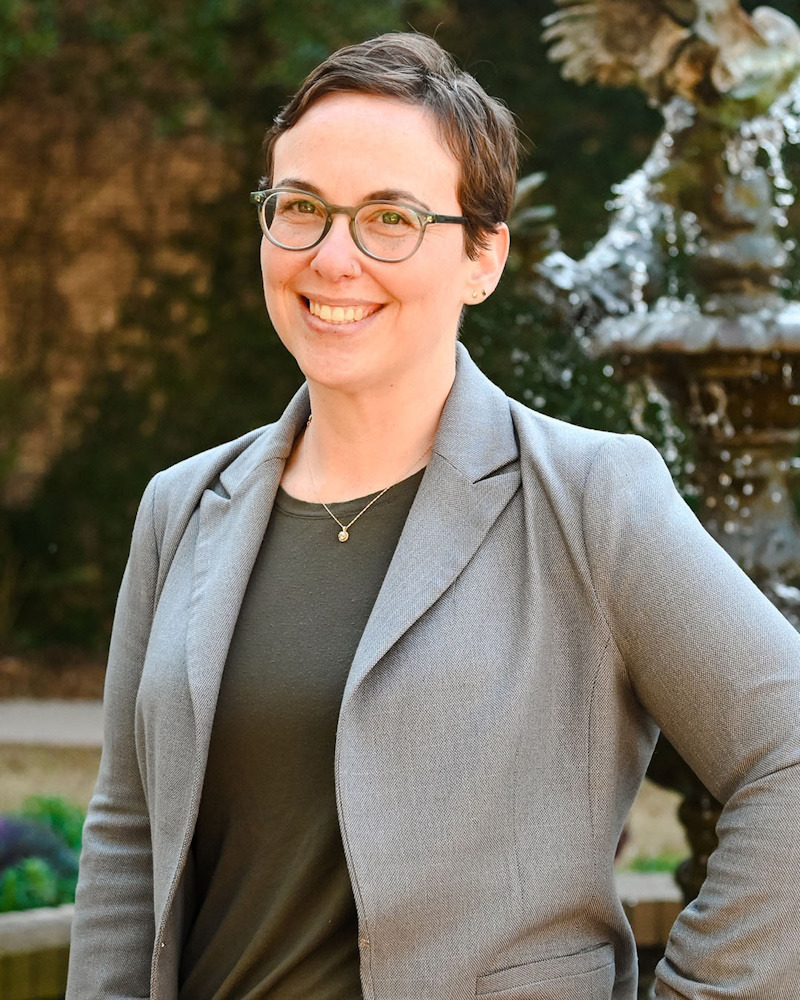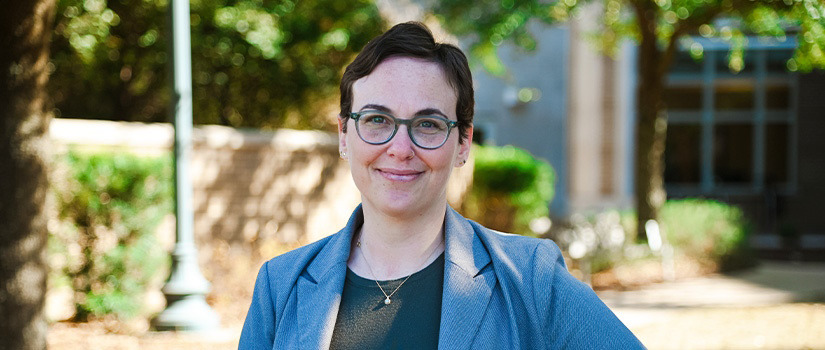March 7, 2024 | Erin Bluvas, bluvase@sc.edu
Assistant professor of health promotion, education, and behavior Marta Bornstein found her path to public health when she was an undergrad at Beloit College in Wisconsin. Among her interdisciplinary courses, the public health, sociology and biology ones stood out as clear favorites – leading her to major in Health and Society.
Then a study abroad semester in South Africa introduced her to global health and an internship at a women’s health organization revealed the ubiquitous yet often invisible social determinants of health.
“I felt passionately about public health and wanted more specific training in the field,” Bornstein says.
She traveled nearly 1000 miles South along the 90th meridian to New Orleans in the first of several moves crisscrossing the country’s various regions and punctuated by occasional international projects in sub-Saharan Africa. As a Master of Public Health student at Tulane University, Bornstein worked on HIV-related studies with faculty members in New Orleans and Kenya. To complete her degree, she interned with the National Union of Women with Disabilities in Uganda.
Bornstein spent the next couple of years working in program evaluation and strategy consulting for nonprofit organizations before getting the itch to work abroad again. She traveled Tanzania to help launch a maternal and child health program followed by a two-year fellowship in STD prevention with the Centers for Disease Control and Prevention in Atlanta.
“During my time at the CDC, I dug more into reproductive health and family planning, along with STD prevention,” Bornstein says. “I really enjoyed being involved with public health programming, but I also realized that I loved doing research, so I decided to return to school to pursue a doctoral degree.”
At the University of California, Los Angeles, Bornstein studied community health sciences with an emphasis on sexual and reproductive health – particularly as it relates to fertility, infertility, and contraceptive use. Bornstein conducted research locally, specifically examining the reproductive health needs of women in methadone treatment in Los Angeles. For her dissertation research, she shifted her focus to global health once more by studying perceptions and experiences of (in)fertility, contraception and reproductive health outcomes in Malawi, enhancing an existing cohort study using qualitative and quantitative methods.
"Infertility is often overlooked in studying sexual and reproductive health, particularly in global health, prompting me to study this critical issue,” Bornstein says. “I love doing both domestic and international research, and I’m fortunate that I’ve been able to keep a foot in each of these fields throughout my career.”

After her 2021 graduation, she moved back to the Midwest to conduct research as a President’s Postdoctoral Scholar in the Division of Epidemiology at The Ohio State University. Here, she continued working on projects related to reproductive health and launched two new studies to understand perceptions and experiences of fertility and infertility in LGBTQ+ populations. Bornstein also began collaborating with OPEN, studying how reproductive health and abortion-related policy impacts access for various groups.
Since she joined USC last fall, she has continued working to understand the sexual and reproductive health needs of LGBTQ+ people and is looking at abortion in the United States’ changing environment. She chose the Arnold School for her first academic appointment because of the collaborative nature of her department, which is known for conducting both international and domestic research. Its location in the Southeast also provides opportunities to conduct her research in a setting that uniquely impacts the populations and issues she studies.
“We are extremely fortunate that Dr. Bornstein has joined us in HPEB,” says department chair Daniela Friedman. “Her research expertise focused on sexual and reproductive health using a reproductive justice framework is critically important and timely. We are thrilled to have Dr. Bornstein teaching and mentoring students in the department and school.”
Bornstein has already met other faculty across the university whose interests overlap with hers and is looking forward to collaborations. She is also excited to work with students, who are invited to reach out about opportunities for involvement in her projects.
